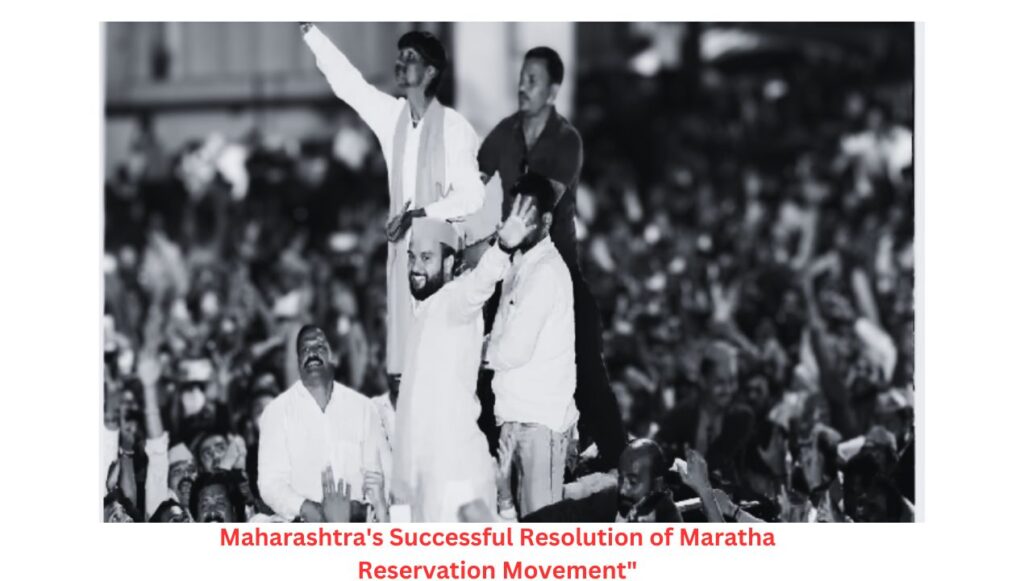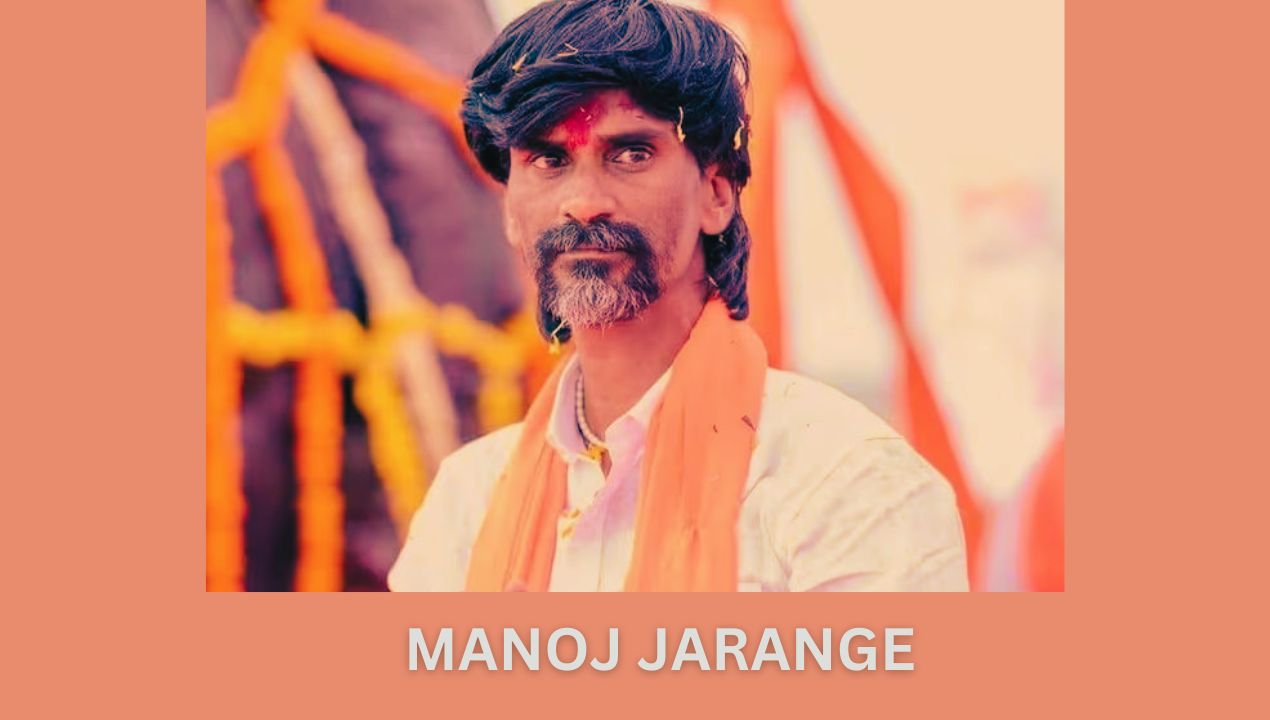Resolving the Maratha Reservation Movement: Maharashtra’s Path to Agreement

Introduction:
The Maratha reservation movement in Maharashtra has reached a positive conclusion, with Chief Minister Eknath Shinde’s government acknowledging the demands put forth by movement leader Manoj Jarange Patil. This article provides an in-depth exploration of the events leading to this resolution, examining Jarange’s demands and the government’s responsive actions.
I. Successful Conclusion of the Protest:
On January 27th, Manoj Jarange Patil declared an end to the Maratha reservation movement, expressing contentment with Chief Minister Eknath Shinde’s proactive measures. The leader’s symbolic act of breaking his fast by drinking juice from the Chief Minister’s hands signifies a harmonious conclusion.
II. Government’s Accommodation of Demands: A. Late-night Meeting and Ordinance:
- A ministerial delegation, led by Deepak Keskar and Mangal Prabhat Lodha, engaged with Jarange, resulting in the issuance of an ordinance addressing all demands.
B. Withdrawal of Cases:
- Jarange’s plea for the withdrawal of registered cases, including Antarwali, was met, with the Home Department ensuring a procedure-compliant withdrawal.
C. Free Education for Maratha Children:
- The government committed to providing free education until post-graduation for Maratha girls during the interim period until reservation is achieved.
D. Reservation in Government Recruitment:
- Seats in government recruitment processes will be reserved for Marathas, addressing a crucial demand for inclusivity.
E. Genealogy Matching for Kunbi Certificates:
- A committee has been appointed for genealogy matching, revealing evidence of 54 lakh people being Kunbi. Certificates will be distributed accordingly.
F. Extension of Shinde Committee:
- The Shinde Committee’s tenure, responsible for searching Kunbi records of Marathas, has been extended by two months.
G. Assistance for Records (Nondi):
- An ordinance will be issued regarding assistance in finding records (Nondi) for relatives, addressing Jarange’s emphasis on this critical aspect.
III. Perspective of Maratha Leader:
Manoj Jarange Patil expressed appreciation for Chief Minister Eknath Shinde’s efforts, acknowledging the government’s effective response to their demands. The leader conveyed gratitude as the protest came to a positive conclusion.
IV. Recap of Previous Developments:
Reviewing the journey leading to the resolution, Jarange initiated a march from Jalna to Mumbai on January 20, culminating in a significant gathering in Vashi, Navi Mumbai, on January 26.
V. Immediate Actions and Future Plans:
Following the resolution, Chief Minister Eknath Shinde and Manoj Jarange are expected to hold a joint press conference. Immediate actions, including the issuance of the ordinance and the extension of the Shinde Committee, showcase the government’s commitment to the agreed-upon measures.
Manoj Jarange-Patil’s Impact on Maratha Reservation Movement
Manoj Jarange-Patil, a prominent Maratha activist advocating for reservation within the OBC quota, is set to initiate an indefinite hunger strike on January 26 in Mumbai, marking what he declares as the “final struggle” for Maratha reservation. Originating from Beed district and now residing in Shahgad, Jalna district, Jarange-Patil has been a key figure in the Maratha reservation movement for approximately 15 years. His activism includes participation in numerous marches and protests, showcasing his commitment to the cause.
Notably, he founded the Shivba Sanghatana to organize protests specifically for Maratha reservation after initially working with the Congress. Following the Supreme Court’s quashing of the Maratha reservation quota in 2021, Jarange-Patil gained prominence during a hunger strike in Ataravali-Sarate, facing police action and garnering widespread attention. His relentless pursuit of Maratha reservation has led to multiple hunger strikes, making him a focal point in the ongoing socio-political discourse.
Conclusion:
The successful resolution of the Maratha reservation movement marks a significant milestone in Maharashtra’s socio-political landscape. The government’s responsiveness demonstrates a dedication to addressing the concerns of the Maratha community. As the protest concludes, the focus now shifts to the effective implementation of the agreed-upon measures and the potential positive impact on the lives of those affected by the movement.
Coal India Limited’s subsidiary, Central Coalfields Limited (CCL), is embarking on a strategic collaboration with the Jharkhand government for the second phase expansion of Tenughat Thermal Power Station (TTPS).
For more details on expansion of Tenughat Thermal Power Station, click here





